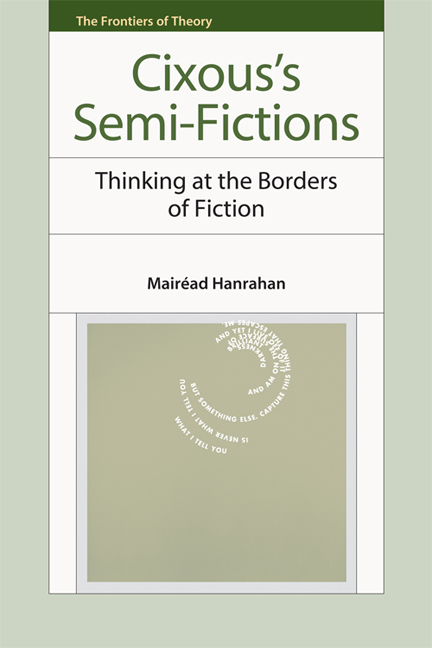Book contents
4 - The Illegitimate Mother: Souffles
Published online by Cambridge University Press: 05 August 2016
Summary
In 2010, Cixous agreed for the first time to republish in French the two texts for which, still today, she remains best known internationally. ‘Le Rire de la Méduse’ and ‘Sorties’, her individual contribution to La Jeune née, the joint initiative with Cathérine Clément which by then had been out of print for decades, appeared together in a volume entitled Le Rire de la Méduse et autres ironies [The Laugh of the Medusa and Other Ironies]. In her introduction to the new edition, the writer muses over the irony that a text in many ways unique in her œuvre should have played the greatest part in defining her reputation. She describes it as the only time she had ‘crié’, or screamed, in writing: ‘Il m'arrive encore de crier, mais pas en littérature. On ne crie qu'une fois en littérature. J'ai crié. Allons. Une bonne fois’ [‘It still happens that I scream, but not in literature. One only screams once in literature. I screamed. Go for it. One good scream’]. For Cixous, ‘Le Rire’ differs from her other literary texts not as a non-literary text but as a literary text that ‘screams’ her ‘cri’ is an ‘é-crit’, as much a piece of writing as any other text bearing her signature. But a piece that uses writing as a call to action, indeed as a call to arms: ‘Le Rire, et autres sorties, est un appel. Un coup de téléphone au monde. On a dit: un manifeste’ [‘Le Rire, and other sorties, is a call. A telephone call to the world. It's been said: a manifesto’]. The substitution of ‘sorties’ for the ‘ironies’ of the volume's title calls attention to the various meanings of the word Cixous had selected as the title of her part of La Jeune née, including the military sense of a sortie or foray. Literature here ventures beyond its usual limits to engage a different, manifestly political, relationship with the world.
Cixous nevertheless takes her distance from those who consider ‘Le Rire’ a manifesto, defined by her beloved Oxford English Dictionary as a public declaration of policy and aims. In particular, she notes that, whereas in France ‘Le Rire de la Méduse’ and La Jeune née were ‘books’, everywhere else in the world they are perceived as ‘acts’ (29).
- Type
- Chapter
- Information
- Cixous's Semi-FictionsThinking at the Borders of Fiction, pp. 94 - 126Publisher: Edinburgh University PressPrint publication year: 2014



